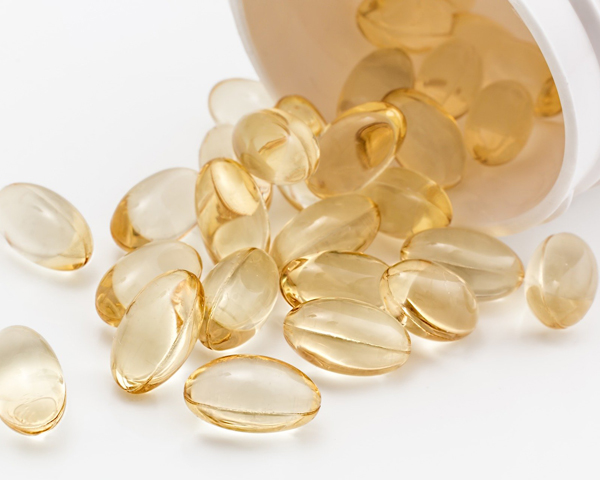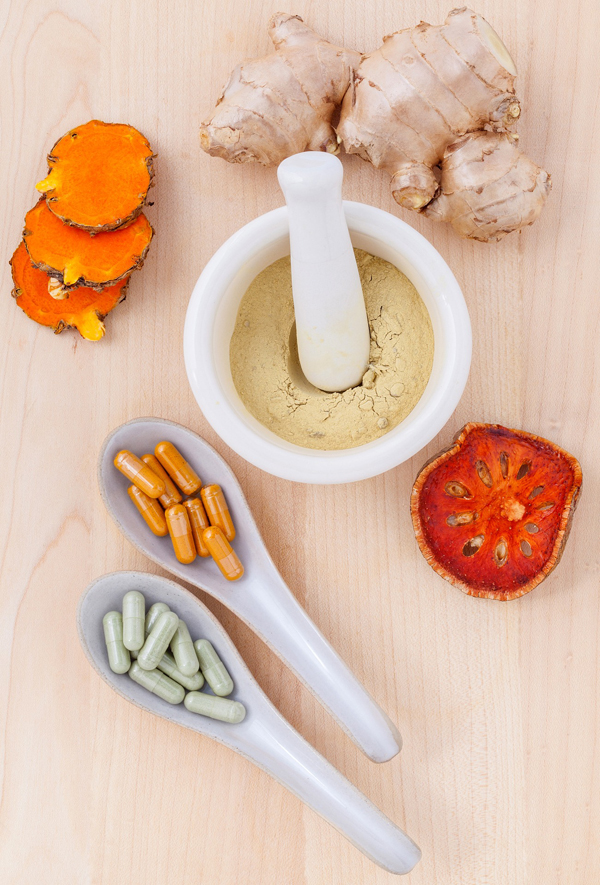Should You Take Supplements?
Should you take supplements? Can they help you be healthy? Can they do more harm than good? Do you really need supplements? What are the best supplements? Below you will find answers to these questions and more.
Vitamins and mineral supplements are often promoted as providing an extra health boost or even disease prevention or treatment. Due perhaps to the aggressive marketing of supplement companies, the majority of Americans use supplements on a daily basis.
Some of the proposed advantages of supplements sound so promising. The problem is supplements don’t necessarily deliver on the promise of better health. Some can even cause harm.
Scientific studies have consistently shown that supplements don’t prevent disease. In some cases, supplements may even increase your risk of disease.
Why Do People Take Supplements?

On the surface, it makes logical sense. The research is clear that those who consume a diet high in fruits and vegetables are healthier. So, wouldn’t extracting the nutrients from the fruits and vegetables and taking them in supplemental form also make us healthier?
Unfortunately, the answer is no.
Health Risks of Taking Supplements

Clinical trials testing whether vitamin and mineral supplements can reduce disease have yielded disappointing results. In fact, there are many health risks involved with taking vitamin and mineral supplements since they often can cause imbalances, be a burden on the liver, and otherwise have a negative impact on health.
Research Studies
For example, researchers from the University of Copenhagen reviewed 14 randomized trials comparing antioxidant supplements with a placebo for prevention of gastrointestinal cancers. While antioxidants are extremely beneficial when consumed in food, the researchers concluded that when consumed in supplement form they did not help prevent cancer, and they actually increased overall mortality.
In another study, 29,000 Finnish men who smoked were given beta-carotene supplements. Beta-carotene is a cancer-fighting antioxidant found in vegetables and fruits, so scientists expected that beta-carotene supplements would help prevent lung cancer and other cancers. But the results were not as expected. Those who took the supplements were more likely to die from lung cancer or heart disease than those who didn’t take them.
In a study of 18,000 people who were at increased risk for lung cancer (due to asbestos exposure), vitamin A and beta-carotene supplements were given to some of the participants. But when those who were taking the supplements started dying from cancer and heart disease at significantly higher rates, scientists quickly ended the study.
Researchers at John Hopkins School of Medicine reviewed 19 studies documenting the connection between vitamin E supplementation and cardiovascular disease and cancer. They found that vitamin E supplements did not lower the risk of these diseases, but actually increased the risk of risk of death.
Several studies have suggested that foods high in calcium might help reduce the risk for colorectal cancer. But when scientists tested the effect of calcium intake through supplements, they found that calcium supplements actually increased the risk for prostate cancer, especially for prostate cancers that are more aggressive.
Calcium supplements also caused increased risk of heart attack and increased risk of stones of the kidney and urinary tract.
Folic acid supplements have been associated with increased risk of cancer.
The use of copper supplements can result in a buildup of copper in the body which can result in anemia. Iron and copper supplements can also harm brain health and may lead to Alzheimer’s disease.
While consuming foods containing vitamin E has been shown to be beneficial to health, a study of 77,000 people found that 400 milligrams of vitamin E per day in supplemental form increased lung cancer risk.
Another study found unexpected evidence about vitamin E supplements. “Much to our surprise, a large NIH-funded clinical trial of more than 29,000 men found that taking supplements of vitamin E actually raised—not reduced—their risk of this disease,” says Dr. Paul M. Coates, director of NIH’s Office of Dietary Supplements.
Vitamin C supplements have been shown to increase oxalic acid excretion in the urine. They also increase the acidity of the urine, which may increase the tendency for uric acid crystals to form. Uric acid crystals can grow large enough to form kidney stones.
Researchers from the University of Minnesota who evaluated 39,000 women found that vitamin and mineral supplements were associated with increased risk of total mortality.
Research published in the Journal of the National Cancer Institute found that (of 11,000 men) those who took multivitamins were much more likely to die from advanced prostate cancer than those who did not take supplements.
An article in the New England Journal of Medicine showed that taking large doses of antioxidant in the form of supplements increased the risk for heart attacks.
Randomized controlled trials have shown vitamin D supplementation to be associated with an increased risk of fractures instead of a lowered risk. Research has shown that vitamin D supplements can also increase “bad” LDL-cholesterol (heart disease), prostate cancer, immune system suppression, autoimmune diseases, gastrointestinal symptoms, kidney disease, and calcium kidney stones.
In addition to all these concerns, it is not uncommon for supplements to contain toxic substances, such as heavy metals.
Researchers in the American Journal of Respiratory and Critical Care Medicine have stated, “Almost every time we take a hard look at objective evidence regarding nutritional supplements, the balance tips away from benefit and toward harm.”
“This idea that people have that [vitamins] will not hurt them may not be that simple.” – Dr. Benjamin Caballero, director of the Center for Human Nutrition at the Johns Hopkins Bloomberg School of Public Health
“Based on existing evidence, we see little justification for the general and widespread use of dietary supplements.” – Researchers from the University of Minnesota
“The concept of multivitamins was sold to Americans by an eager nutraceutical industry to generate profits. There was never any scientific data supporting their usage.” – Steven Nissen, chairman of cardiology at the Cleveland Clinic
“Foods that are rich in vitamins seem to be associated with reduced risk of cancer, but vitamins packaged as pills clearly do not have the same effect.” – Researchers in the American Journal of Respiratory and Critical Care Medicine
A Little is Good; A Lot is Bad?

One of the reasons for the negative effects of consuming supplements is that consuming nutrients that are separated from (or concentrated from) the original food source can create over-concentrations and imbalances of nutrients in the body, which cause the body’s systems to malfunction.
For example, when we eat berries, beans, and other foods that are high in antioxidants, the antioxidants in these foods neutralize the free radicals (which is a good thing since free radicals damage cells); but when those antioxidants are taken in supplement form, the antioxidants are highly concentrated, and an imbalance can be created. Why is this a problem? Because, while free radicals do damage cells, some free radicals are needed to kill bacteria and eliminate new cancer cells, and the imbalance created by taking antioxidant supplement hinders the body’s ability to eliminate bad bacteria and cancer cells. When we eat antioxidants in food, everything stays in balance – even if we eat large amounts of antioxidant-rich food – because the other components of the food keep things in balance.
Taking isolated nutrients – like we find in supplements – can also displace the metabolism of other nutrients in the body.
For example, iron supplements compete for absorption with other minerals like calcium, magnesium, and zinc. Supplementing with vitamin D can lower magnesium levels in the body. High doses of eicosapentaenoic (an omega-3 fatty acid) can lower levels of dihomogammalinolenic acid (DGLA), a substance with a wide range of desirable cardiovascular and anti-inflammatory actions. Too much vitamin B6 can cause a folic acid deficiency. Iron supplements can inhibit calcium absorption. Excess zinc can cause deficiencies in copper and iron. And supplemental intake of vitamin C can interfere with copper metabolism.
The vitamin B6 in sunflower seeds, amaranth, garlic, lentils, and other healthful foods helps people sleep better, relieve depression, calm nerves. But as soon as we concentrate this nutrient and put it in a supplement, it contributes to the development of folic acid deficiency, which can lead to anemia and other health issues.
When one obtains these nutrients from food sources, they are perfectly balanced.
Additives in Supplements
Another problem with supplement is that many contain added ingredients such as magnesium stearate, (which alters and suppresses the structure and function of immune cells), silicon dioxide (which causes gut inflammation), and sodium benzoate (which reduces healthy gut probiotics and increases harmful gut bacteria).
The Synergistic Function of Whole Food

The relationship between nutrients and the human body is very intricate, precise, complex, and complicated. There are countless nutrients and substances in food that lead to innumerable metabolic reactions when they are consumed.
Many health-promoting compounds are found in vegetables and fruits, and these compounds work synergistically to exert their beneficial effect. In other words, they work in perfect and harmonious combination to promote health of the body. For example, the consumption of avocado has been shown to prevent cancer, but when scientists tried to concentrate the cancer-preventing substances of avocado into a supplement, the cancer-prevention benefits disappeared. The cancer-preventing substances must be consumed in the whole food – the avocado – for us to experience the benefits.
As pointed out by the Baltimore Longitudinal Study of Aging, “There are more than 200 different carotenoids and 200 different flavonoids in a single tomato, and these chemicals can all have complex interactions that foster health beyond the single nutrients we know about like lycopene or vitamin C.”
Population studies consistently show that those with the lowest disease rates eat the most fruits and vegetables, not the most vitamin pills.
The whole is greater than the sum of the individual parts

When nutrients are extracted from the whole food, they cannot work in the manner they were intended to work and may even cause harm.
There are many reasons for this. Here are just a few:
1. Foreign to the body
The body does not recognize isolated molecules in supplements and does not metabolize them as effectively as from food sources. The body was not created to metabolize these isolated nutrients.
2. Even natural supplements are not natural
These nutrients can be harmful when separated from their original food source since they are removed from the other constituents in the food source that cause these nutrients to work as it should.
3. Can displace the metabolism of other nutrients
A nutritional supplement can displace the metabolism of other nutrients. For example, iron supplements can inhibit calcium absorption, zinc can cause copper deficiency, eicosapentaenoic lowers levels of DGLA in the body, vitamin D can deplete magnesium, vitamin B12 can lower melatonin levels, vitamin C can lead to vitamin B12 deficiency, copper deficiency, and more.
4. Too highly concentrated
Supplements are highly concentrated. Sometimes, because of their concentrated form, the body recognizes the supplement as a toxic substance and has to work hard to rid itself of the substance.
5. Irritating to body systems
Nutrients in concentrated forms can be irritating to some body systems. Many supplements that are promoted as safe and natural are very damaging to the liver due to their high concentration.
6. Prompts body to stop making its own
Supplementing may cause your body to stop making its own natural, health-giving chemicals. For example, taking supplements such as melatonin and creatine trains your brain to tell your body to stop producing it on its own.
As Dr. Agatha Thrash, board specialist in pathology and author of several books on lifestyle medicine, says, “It is better to let the body be its own biochemist, and it is impossible for one to balance adequately through pharmacologic juggling the nutrients that should be obtained from food.”
Can’t Improve on God

There are literally reams of research over decades that clearly indicate that a simple diet based on fruits, vegetables, whole grains, and a few nuts and seeds has been shown to reduce the risk of disease, but there is no evidence that supplements can reduce risk.
The human body was designed to function on simple, whole food. The body knows exactly what to do with healthy food and can effectively use it for healing and strength and health.
Using supplements is like trying to make your car run on apple juice instead of gasoline. You’ll likely have a few problems because your car was not designed to run on apple juice.
It’s always best to get nutrients from food. That’s the way God intended for it to be used – as part of a total package. Do we know better than the Creator? Even the best scientists don’t have a clue about what our body’s systems need. The nutrient synergy in food is extremely complicated, and, just as baby formula can never even come close to offering the brain-growing components of breast milk, we do not have the knowledge or ability to reproduce what the Creator has provided in the simple products of the earth.
When whole foods are eaten, the different constituents of food work together in ways that are exponentially more beneficial than each one working alone. Nutrients were intended to be used as part of a total package. The whole is greater than the sum of the individual parts.
How to Have Good Health
1. Get nutrients from a safe source.
We can get all the nutrients we need from a healthy diet and lifestyle (food for most nutrients, the sun for vitamin D).
2. Remove nutrient killers.
Not only do we need to eat nutrient-filled food, but we also need to be careful to not destroy or counteract those nutrients with nutrient-killers.
For example, sugar destroys B vitamins in the body, so omitting sugar will raise levels of B vitamins in the body. Another example: the type of protein in milk inhibits the absorption of the calcium in milk; it’s best to get calcium from other foods, like kale, almonds, and sesame seeds.
3. Instead of throwing supplements at a health problem, try to ascertain the cause.
When we treat the cause rather than the symptoms, we have better health.
“Pills are not a shortcut to better health and the prevention of chronic diseases,” says Larry Appel, M.D., director of the Johns Hopkins Welch Center for Prevention, Epidemiology and Clinical Research. “Other nutrition recommendations have much stronger evidence of benefits—eating a healthy diet, maintaining a healthy weight, and reducing the amount of saturated fat, trans fat, sodium and sugar you eat.”
Poor Soil?
Perhaps you’ve heard that the soil that foods are grown in is lacking nutrients, and that’s why we need to take supplements. Some believe that this claim is just a ploy to get people to buy supplements. Regardless, given the many dangers of taking supplements, a wiser course would be to supplement the soil, not the body. If you grow a garden, be sure to build your soil with compost. If you don’t grow a garden, get your produce from a farmer’s market or a CSA, as these sources tend to grow their crops in more nutrient rich soil.
“The mountains and hills are changing; the earth is waxing old like a garment; but the blessing of God, which spreads a table for His people in the wilderness, will never cease.”
But How Do I Make Up for My Inadequate Diet?
Most Americans suffer from an abundance rather that a lack. We eat too many calories and too many refined foods. And there is no supplement that can remedy that!
Nutrition researchers are continually discovering that certain foods contain disease-fighting and health-enhancing substances that cannot be reproduced and put into a pill. Again, taking an isolated amount of any one nutrient can throw off the natural balance that is obtained through the diet. Therefore, it is far better to eat, for example, carrots or squash than to take a carotenoid supplement.
“It’s possible to get all of the nutrients you need by eating a variety of healthy foods, so you don’t have to take one,” says Carol Haggans, a registered dietitian and consultant to NIH.
If you need help getting on the right track for healthy eating, I can help. Check out my 30-day weight loss program that offers you motivating videos, meal plans, grocery lists, and more!
Bottom Line
Your best choice for your nutrients is a simple diet that is based on fruits, vegetables, whole grains, and a small amount of nuts and seeds.
“The grains, with fruits, nuts, and vegetables, contain all the nutritive properties necessary to make good blood.” (The Ministry of Healing, 316) God’s diet is good enough. It does not need supplementation.
“The body can receive all the nutrients that it needs to maintain health and to recover from illness if one will eat generously of fresh fruits, vegetables, and whole grains and sparingly of any other food.” Agatha Thrash, M.D.
Was This Helpful to You?
If this information has been helpful to you, consider giving a donation so we can continue to provide unbiased information for you and keep ads off the site.
Disclaimer
The information in this article is for educational purposes only. It is not as a substitute for medical diagnosis or treatment.
References
Jaakko Mursu, Kim Robien, Lisa J. Harnack, Kyong Park, and David R. Jacobs, “Dietary Supplements and Mortality Rate in Older Women. The Iowa Women’s Health Study,” Archives of Internal Medicine 171 (October 10, 2011): 1625–33.
Bjelakovic, G., Nikolova, D., Simonetti, R. G., & Gluud, C. (2004). Antioxidant supplements for prevention of gastrointestinal cancers: a systematic review and meta-analysis. Lancet (London, England), 364(9441), 1219–1228.
Alpha-Tocopherol, Beta Carotene Cancer Prevention Study Group (1994). The effect of vitamin E and beta carotene on the incidence of lung cancer and other cancers in male smokers. The New England journal of medicine, 330(15), 1029–1035.
Omenn, G. S., Goodman, G. E., Thornquist, M. D., Balmes, J., Cullen, M. R., Glass, A., Keogh, J. P., Meyskens, F. L., Valanis, B., Williams, J. H., Barnhart, S., & Hammar, S. (1996). Effects of a combination of beta carotene and vitamin A on lung cancer and cardiovascular disease. The New England journal of medicine, 334(18), 1150–1155.
Bjelakovic, G., Nikolova, D., Gluud, L. L., Simonetti, R. G., & Gluud, C. (2007). Mortality in randomized trials of antioxidant supplements for primary and secondary prevention: systematic review and meta-analysis. JAMA, 297(8), 842–857.
Roberto Pastor-Barriuso, Ph.D., Darshan Dalal, M.D., M.P.H.; Rudolph Riemersma, Ph.D; and Lawrence Appel, M.D., M.P.H., Johns Hopkins Medicine, Study shows high-dose vitamin E supplements may increase risk of dying (2004)
Lonn, E., Bosch, J., Yusuf, S., Sheridan, P., Pogue, J., Arnold, J. M., Ross, C., Arnold, A., Sleight, P., Probstfield, J., Dagenais, G. R., & HOPE and HOPE-TOO Trial Investigators (2005). Effects of long-term vitamin E supplementation on cardiovascular events and cancer: a randomized controlled trial. JAMA, 293(11), 1338–1347.
Cole, B. F., Baron, J. A., Sandler, R. S., Haile, R. W., Ahnen, D. J., Bresalier, R. S., McKeown-Eyssen, G., Summers, R. W., Rothstein, R. I., Burke, C. A., Snover, D. C., Church, T. R., Allen, J. I., Robertson, D. J., Beck, G. J., Bond, J. H., Byers, T., Mandel, J. S., Mott, L. A., Pearson, L. H., … Polyp Prevention Study Group (2007). Folic acid for the prevention of colorectal adenomas: a randomized clinical trial. JAMA, 297(21), 2351–2359.
Charles D, Ness A R, Campbell D, Smith G D, Hall M H. Taking folate in pregnancy and risk of maternal breast cancer BMJ 2004; 329 :1375
Itender Singh, Abhay P. Sagare, Mireia Coma, David Perlmutter, Robert Gelein, Robert D. Bell, Richard J. Deane, Elaine Zhong, Margaret Parisi, Joseph Ciszewski, R. Tristan Kasper, Rashid Deane,
Dysregulation of brain Aβ homeostasis by Cu, Proceedings of the National Academy of Sciences Sep 2013, 110 (36) 14771-14776
George J. Brewer, Risks of Copper and Iron Toxicity during Aging in Humans, Chem. Res. Toxicol. 2010, 23, 2, 319–326
American Thoracic Society. (2008, March 3). Certain Vitamin Supplements May Increase Lung Cancer Risk, Especially In Smokers. ScienceDaily.
Klein EA, Thompson IM, Tangen CM, et al. Vitamin E and the Risk of Prostate Cancer: The Selenium and Vitamin E Cancer Prevention Trial (SELECT). JAMA. 2011;306(14):1549–1556.
Knight, J., Madduma-Liyanage, K., Mobley, J. A., Assimos, D. G., & Holmes, R. P. (2016). Ascorbic acid intake and oxalate synthesis. Urolithiasis, 44(4), 289–297.
Alessandra Calábria Baxmann, Claudia de O.G. Mendonça, Ita Pfeferman Heilberg, Effect of vitamin C supplements on urinary oxalate and pH in calcium stone-forming patients, Clinical Nephrology – Epidemiology – Clinical Trials 63, 3, P1066-1071, 2003
Mursu, J., Robien, K., Harnack, L. J., Park, K., & Jacobs, D. R., Jr (2011). Dietary supplements and mortality rate in older women: the Iowa Women’s Health Study. Archives of internal medicine, 171(18), 1625–1633.
Lawson, K. A., Wright, M. E., Subar, A., Mouw, T., Hollenbeck, A., Schatzkin, A., & Leitzmann, M. F. (2007). Multivitamin use and risk of prostate cancer in the National Institutes of Health-AARP Diet and Health Study. Journal of the National Cancer Institute, 99(10), 754–764.
Sanders, K. M., Nicholson, G. C., & Ebeling, P. R. (2013). Is high dose vitamin D harmful?. Calcified tissue international, 92(2), 191–206.
G M Scelfo, A R Flegal. “Lead in calcium supplements.” Environmental health perspectives 108,4 (2000): 309-13
Tim Byers, Nutrition and Lung Cancer, Lessons from the Differing Effects of Foods and Supplements, American Journal of Respiratory and Critical Care Medicine
Tim Byers, Nutrition and Lung Cancer, Lessons from the Differing Effects of Foods and Supplements, American Journal of Respiratory and Critical Care Medicine
You my also like:
Before you go . . .
Did you know that you can eat all this delicious food AND lose weight? You can!
No calorie counting. No portion sizes.
Join my online weight loss program today!







Excellent article, Jennifer! Thank you. Question: how should I apply this information to fortified foods (Cheerios, soymilk, etc…)?
Thank you for your comment, Hope.
When we consume nutrients in their natural form (whole food) they are perfectly balanced with the other nutrients in the food which not only keeps the body in balance, but also helps to regulate their uptake into the body systems.
Isolated nutrients (such as are found in fortified foods) are nutrients that have been removed from the thousands of other essential nutrients that keep them in balance and help regulate their uptake. In addition, research shows that fortified foods may cause nutrient intakes to exceed the safe limits.
So, while I wouldn’t go so far as to say that we should never eat a fortified food (the body does an amazing job of adapting to our less-than-optimal actions), I would advise to stick to simple, whole foods as much as possible. The foods we get from our gardens and orchards are the foods that we were created to thrive on.
I hope this helps. 🙂
Thank you for this article Jennifer! Wow, I am so thankful to have read this information!
Michelle
You’re welcome, Michelle. I’m so glad it was helpful. Thank you for your comment.
Jennifer,
I don’t see any reference to quick breads. Why? Do they not sufficiently cook the grains, or is it the refined flour used? Or what?
Why don’t you talk about quick breads?